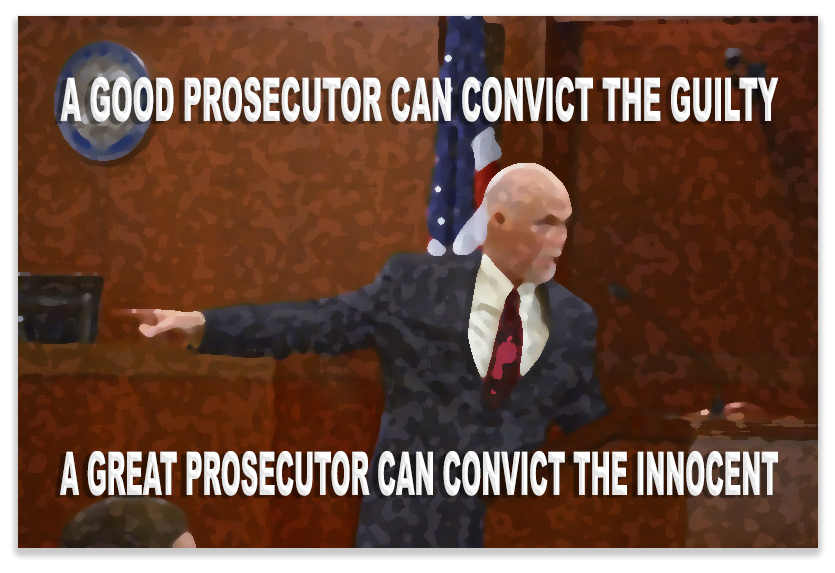We post news and comment on federal criminal justice issues, focused primarily on trial and post-conviction matters, legislative initiatives, and sentencing issues.

SUPREME COURT ENDS YEAR WITH CRIMINAL-CASE CERTIORARI BLOWOUT
In what was probably its last certiorari grant order for 2023, the Supreme Court issued probably added four criminal cases last week.
 The highest profile case is Fischer v. United States, which arises from a defendant convicted of obstruction of Congress for the January 6th Capitol riot. He was convicted of an 18 USC § 1512(c) offense, which prohibits corruptly obstructing, influencing, or impeding “any official proceeding.” The district court dismissed the § 1512(c) charge, holding that Congress only intended it to apply to evidence tampering that obstructs an official proceeding. The D.C. Circuit Court of Appeals reversed that decision in a 2-1 opinion, ruling that “[u]nder the most natural reading of the statute,” the law “applies to all forms of corrupt obstruction of an official proceeding, other than the conduct that is already covered by” the evidence-tampering language of § 1512(b). One judge dissented that the government’s interpretation of the statute would render it “both improbably broad and unconstitutional in many of its applications.”
The highest profile case is Fischer v. United States, which arises from a defendant convicted of obstruction of Congress for the January 6th Capitol riot. He was convicted of an 18 USC § 1512(c) offense, which prohibits corruptly obstructing, influencing, or impeding “any official proceeding.” The district court dismissed the § 1512(c) charge, holding that Congress only intended it to apply to evidence tampering that obstructs an official proceeding. The D.C. Circuit Court of Appeals reversed that decision in a 2-1 opinion, ruling that “[u]nder the most natural reading of the statute,” the law “applies to all forms of corrupt obstruction of an official proceeding, other than the conduct that is already covered by” the evidence-tampering language of § 1512(b). One judge dissented that the government’s interpretation of the statute would render it “both improbably broad and unconstitutional in many of its applications.”
SCOTUS also will review a 9th Circuit ruling in favor of Danny Lee Jones, sentenced to death for two murders. A federal district court in Arizona rejected Jones’s claims that his lawyer had provided inadequate assistance, but the 9th reversed that decision, upholding its position in an order denying an en banc rehearing with ten judges dissenting.
The issue is how evidence not presented by a defense attorney because of failure to investigate should be weighed in determining Strickland v. Washington prejudice in a post-conviction proceeding. Although the issue relates to an Arizona death penalty case, the outcome could provide the first new ruling on Strickland prejudice in well over a decade.
 In Chiaverini v. City of Napoleon, the high court will consider whether a claim for malicious prosecution can proceed for a baseless criminal charge, even if there was probable cause for prosecutors to bring other criminal charges. In Snyder v. United States, the Supremes will consider whether the federal bribery statute – 18 USC § 666(a)(1)(B) – makes it a crime to accept “gratuities” — that is, payment for something a government official has already done, without any prior agreement to take those actions in exchange for payment.
In Chiaverini v. City of Napoleon, the high court will consider whether a claim for malicious prosecution can proceed for a baseless criminal charge, even if there was probable cause for prosecutors to bring other criminal charges. In Snyder v. United States, the Supremes will consider whether the federal bribery statute – 18 USC § 666(a)(1)(B) – makes it a crime to accept “gratuities” — that is, payment for something a government official has already done, without any prior agreement to take those actions in exchange for payment.
The Court will rule on the cases by the end of its current term on June 30, 2024.
Sentencing Law and Policy, Four criminal cases of note in latest SCOTUS cert grants (December 13, 2023)
Fischer v. United States, Case No. 23-5572 (certiorari granted December 13, 2023)
Thornell v. Jones, Case No. 22-982 (certiorari granted December 13, 2023)
Chiaverini v. Napoleon, Case No. 23-50 (certiorari granted December 13, 2023)
Snyder v. United States, Case No. 23-108 (certiorari granted December 13, 2023)
– Thomas L. Root




